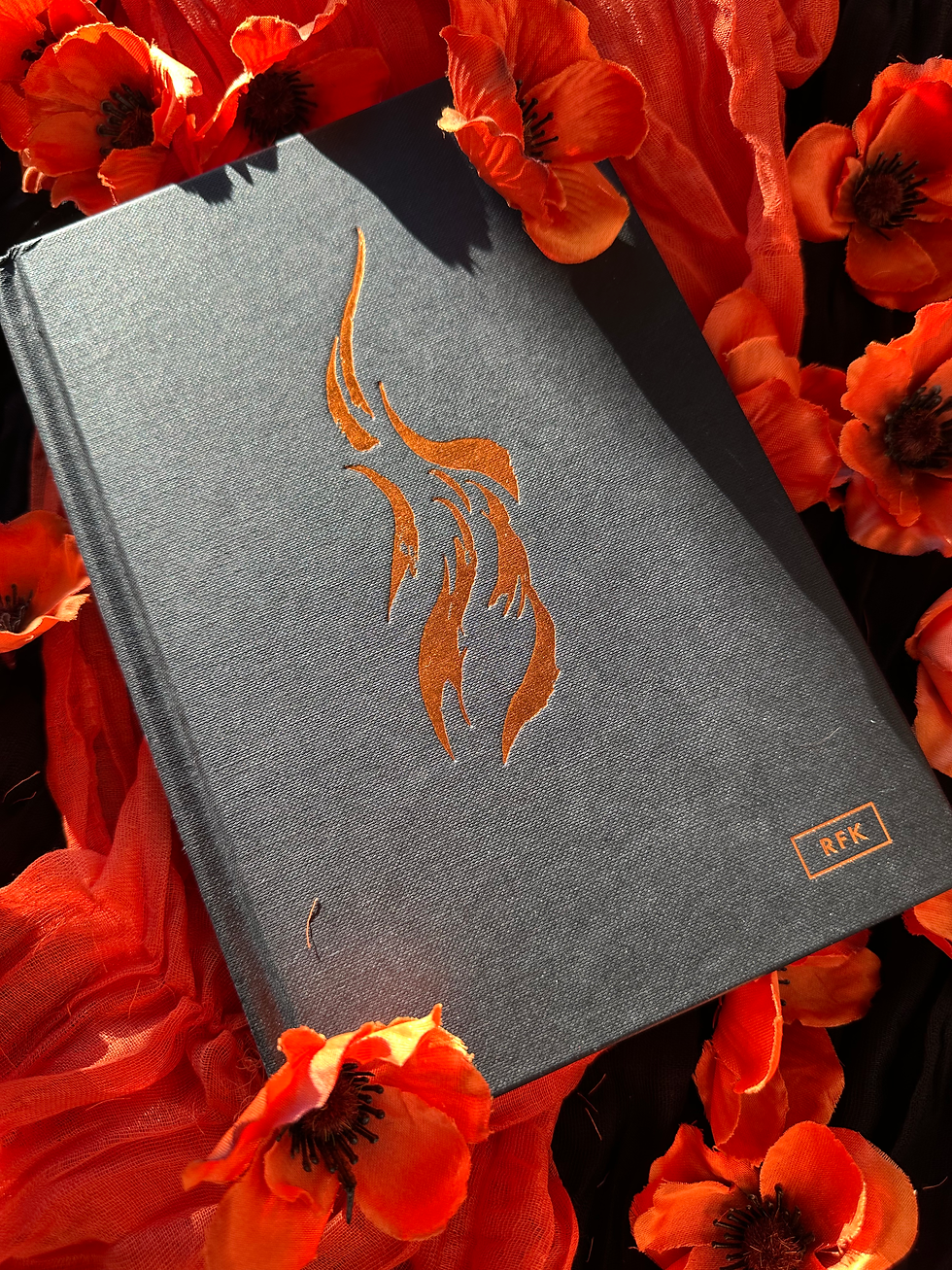The Poppy War - R.F Kuang
- Kelsea Taylor
- Aug 5, 2025
- 4 min read
Firstly, can I say I don’t normally like historical fiction. When I read the blurb for this, I was intrigued but still not sure if this would be for me. It wasn’t an easy read; it wasn’t something I could finish in a day or even a couple of days. Why? Because not only was the plot and storyline heavy, but the author writes with so much eloquence and complexity that I was struggling to keep up with it all. I even found words I didn’t know, and out came the dictionary.

Before I dive into this review, I just want to say this story isn’t for everyone. It is full of heavy, dark, and extremely violent elements. It contains some of the most horrific descriptive scenes I have read, which have affected me. There are very graphic gore scenes, sexual violence, heavy drug use, and horrific war crimes, so please read with caution. That being said, normally something like this book I would have given up on, but this story sucked me in and didn’t let me leave until the very end. While some people may not agree with me, ( that is fine because we are all different) I genuinely love how R.F. Kuang writes; she is inspiring. This story was a 5-star read, and I thoroughly enjoyed being in her world, even if it was totally damaging.

Learning that this book was based on the Second Sino-Japanese War, which took place during World War II, made this element of history interwoven within the story that much more difficult to swallow. It was truly a horrendous time for China and the island of Nanjing. Throughout the book, there are elements of what happened in the war woven into the story. It is gut-wrenching to read.

The narrative follows Rin, a young girl from an opium-torn, poor town in the Rooster Province, where she helps run an opium front for her foster parents. She is being arranged and sold off to marry an older man to further her foster parents' criminal business, and she refuses to be part of it. She comes up with a plan to take the most difficult test, the Keju, to somehow achieve top marks to get into the only school that doesn’t have fees, Sinegard, the most elite military school. However, she will need to prove herself even after she gets in. That was the easy part; now Rin has to prove herself again and again just to stay. With her dark skin and her accent, clearly indicative of her poverty and gender, she is now an outcast among her peers and won't back down from proving she belongs there. Even the teachers don’t want her there, not until she meets the eccentric and daft Master Jiang, who is the Master of Shamanism and helps Rin discover her hidden, lethal, and mythical powers. It’s a dangerous game to deal with the gods and take psychoactive substances, but with the hint of the Third Poppy War on the horizon, Rin needs to learn to control the gods’ power or find out just how brutal the Federation of Mugen really is.

The world-building and immersive storytelling by R.F. Kuang are simply astounding. I found myself both thrilled and terrified as I delved deeper into the narrative; I wanted to stop but couldn’t pull myself away. The characters each contribute significantly to the plot, playing vital roles in the struggle for survival and the defense of their homeland. Although this is just the first installment of the trilogy and lacks a happy ending, every element is crafted masterfully, illustrating the devastating impact of war on nations and their people.
Rin is an incredible protagonist, and honestly, I doubt I could endure even a fraction of what she and her companions faced during the Federation's invasion. Especially her team, the infamous Thirteenth Division known as the Cike; each member wields god-like powers, yet they are deeply flawed. Just imagine using drugs to harness the strength to defeat an enemy; it certainly takes a toll on both mind and spirit.
I felt particularly sorry for Venka, who endured horrific experiences at the hands of the Mugen soldiers. Additionally, I empathised with Altan, despite his frequent irritations. The weight of leadership and the expectations thrust upon him destined him for a life filled with sorrow and hardship. It’s heartbreaking that he was forced into addiction as a child, a failure of the teachers and leaders of the Nikara Empire.
On a brighter note, my favourite characters are Rin and Kitay. They bring crucial elements to the narrative, enhancing our understanding of both the intellectual and strategic aspects of war. Their presence adds moments of brightness in an otherwise dark academic setting.

Overall, I thoroughly enjoyed reading The Poppy War, and I am excited to read the sequel in the series. R.F. Kuang has quickly become one of my favourite authors, and I plan to purchase all of her books.



















Comments